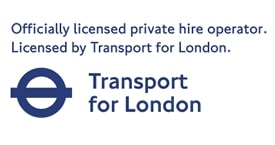London has embraced Uber but loves its traditional London taxi black cabs too. What to do?
Last week, London black cab drivers made their latest protest outside Transport for London’s Victoria Street headquarters against the presence of Uber taxis on London’s streets. Last month, a Conservative MP told the Commons that the capital would have to choose between the traditional licensed trade, with its proud values and special Knowledge, and its Californian internet age rival with its disruptive phone app technology. “London can’t have it both ways,” he declared.
But now comes survey data suggesting that Londoners might quite like a bit of both, especially if black cab drivers can adjust to a fast-changing situation without losing their unique identity. Pollsters YouGov and the communications firm PLMR have published research indicating that 55% of Londoners think the newer services are a good thing for them compared with only 16% who don’t. At the the same time, 42% think black cabs will still be in business 20 years from now compared with 30% who think they’ll be extinct.
This belief in London black taxis’ staying power is interpreted by PLMR, which commissioned the research for itself rather than for any client, as indicating a durable demand for the capital’s legendary cabbies. However, they point to the survey’s third finding, which is that a massive 75% of the 1,000 Londoners asked think they should always be able to pay their black cab fare using contactless tech. All this, reckons PLMR, shows that black cabs are still held in great affection but that they need to adapt quickly to changing times. TfL appears to thinks so too: its board is to consider making it compulsory for black cabs to offer electronic payment facilities. This follows a public consultation whose results are not yet public but are widely believed to have found strong support for the idea.
The row between TfL and London cabbies over Uber has been rancorous indeed, with the legality or otherwise of the Uber app - which the Licensed Taxi Drivers’ Association claims is a taxi meter, and should therefore disqualify the company from operating in London - to be decided on at the High Court this autumn. Boris Johnson, though, is not alone in being absolutely sure that if m’learned friend concludes that TfL was wrong to have given Uber the go-ahead back in 2012, Uber will have a way around that setback to hand.
The Evening Standard’s Andrew Neather wrote an admirably clear account of the tensions between TfL, black cabs and whole private hire spectrum back in January. Aspiring mayors have since pitched in on the issue. Tessa Jowell has said she is boycotting Uber, which is legally based in the Netherlands, until it pays taxes in the UK. Christian Wolmar would like the black cab trade to embrace apps: “Do you really need to go out and hail cabs?” he’s inquired. There are concerns about the control and conduct of Uber and there’s been harsh criticism of the mayor and TfL by the London Assembly’s transport committee, which says they’ve failed to get a grip on a fraught and fragmented situation. Meanwhile, Uber (and other) private hire drivers are proliferating. Johnson, anxious to claw back a bit of the support from cabbies he used to enjoy, is now arguing for a cap on their numbers.
Where will it all end? The answer is bound to be where customer preference leads, but those survey findings do indeed suggest this needn’t spell the end for the black cab. My experience of Uber is limited to a single late night ride from Chiswick, where I’d been visiting some friends, to my home in Hackney. The fare was just over £24 - it’s hard to argue with a price that low. Yet the London black cab trade is an extraordinary institution whose distinctive qualities many will go on appreciating. A way has to be found to accommodate and properly regulate the full range of taxi services London wants. I wonder what it is.
Source: The Guardian




